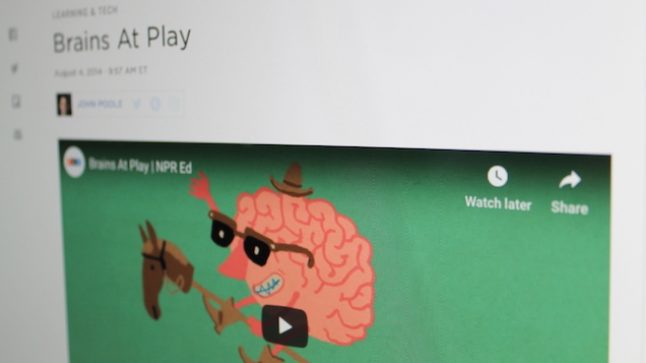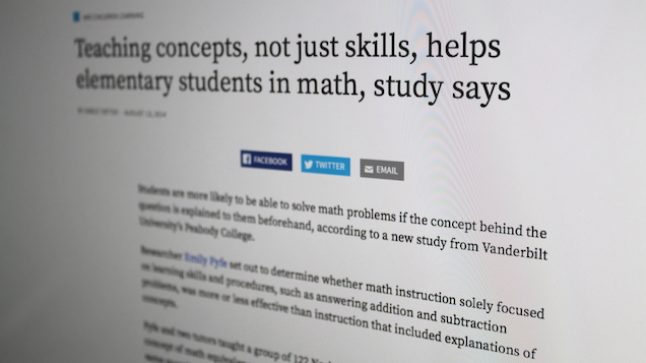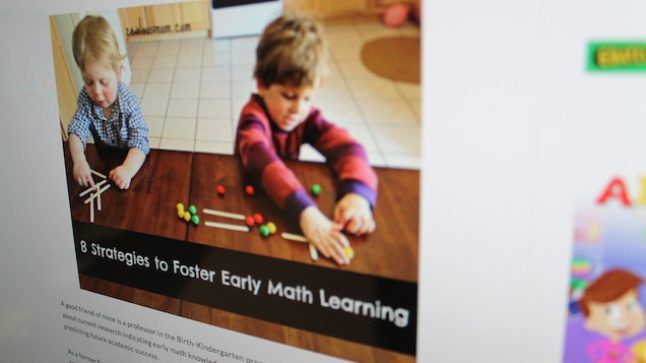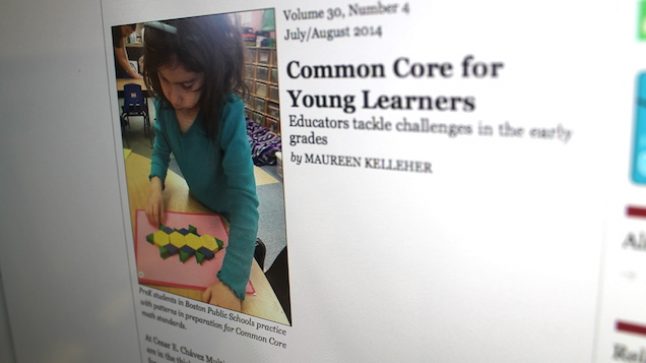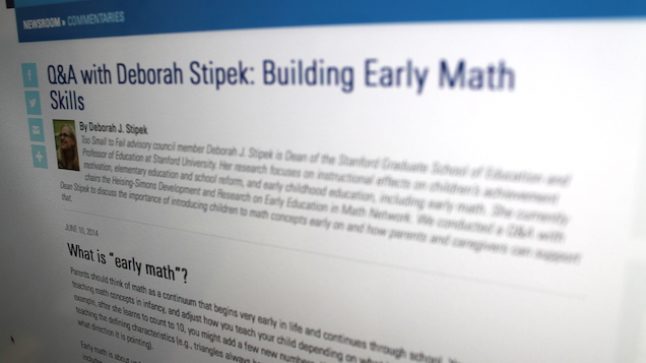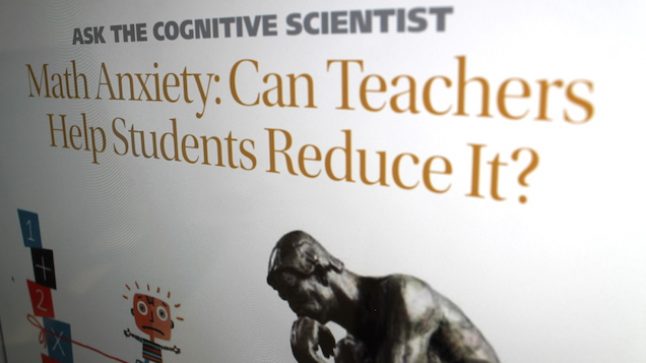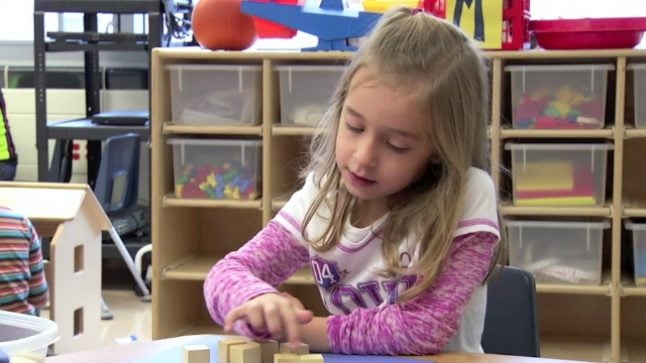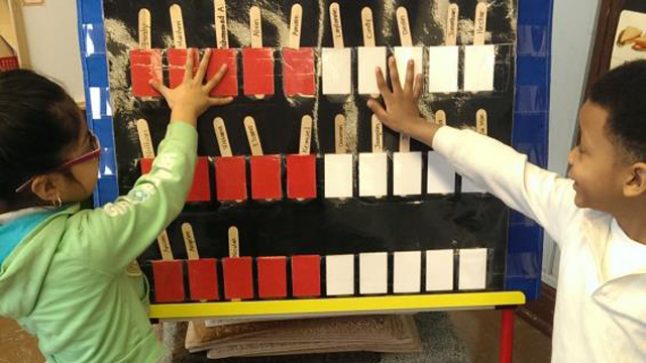1st Grade Math
Series: Hear from the Experts
Playtime Isn’t Over: The Importance of Play in Early Grades
August 29, 2014
Research suggests that providing children with ample playtime allows them to develop important social and behavioral skills.
- Age/Grade Level: Pre-K, Kindergarten, 1st Grade
- Tags Play
Series: Hear from the Experts August 14, 2014
With Second and First Grade Math Activities, Study Finds Concepts Matter
This study done by Vanderbilt University and the University of Louisville examined children's ability to learn just math skills and procedures versus explaining the underlying concepts beforehand. It found that children were more likely to…
- Topic: Number Operations
- Age/Grade Level: 1st Grade, 2nd Grade, 3rd Grade
Series: Ideas at Work August 8, 2014
6 Tips When Discussing Math with the English Language Learner
Math, with its own set of unique vocabulary, can sometimes be a difficult subject for non-native speakers of English.
- Age/Grade Level: Pre-K, Kindergarten, 1st Grade, 2nd Grade, 3rd Grade
- Tags English Language Learner, Gesture
Series: Ideas at Work July 16, 2014
8 Tips for Teaching Math Strategies and Concepts
In this blog post, a mother details her exploration in teaching math strategies to her children. Teaching math strategies such as these at an early age sets up children for a successful time in preschool…
- Age/Grade Level: Pre-K, Kindergarten, 1st Grade, 2nd Grade, 3rd Grade
Series: About Early Math July 11, 2014
For Early Learning in Math, Common Core Standards Present Opportunities, Struggles
In this article of the Harvard Education Letter, Collaborative staff and others discuss the changes taking place in early math. Common Core standards and their implementation are influencing the curriculum and lesson planning, particularly in choosing…
- Age/Grade Level: Pre-K, Kindergarten, 1st Grade, 2nd Grade, 3rd Grade
- Tags Common Core, CCSS
Series: About Early Math June 30, 2014
Teaching Math Strategies to Struggling Students
A new study from the Department of Education and the National Institutes of Health finds that many teachers are not using the most effective strategies for their students. Tailoring teaching strategies to individual student needs…
- Age/Grade Level: 1st Grade
Series: About Early Math June 20, 2014
Deborah Stipek: When Learning Numbers Kids Should Be Building Core Concepts
What "early math" really means is explored in this Q&A with Deborah J. Stipek, Professor of Education at Stanford University and Dean of the Stanford Graduate School of Education.
- Age/Grade Level: Pre-K, Kindergarten, 1st Grade
Series: Hear from the Experts June 17, 2014
Is Overcoming Math Anxiety A Way To Improve Student Performance?
In this downloadable pdf article, professors Sian Beilock of the University of Chicago and Daniel Willingham of the University of Virginia explore overcoming math anxiety, its importance in the math classroom, and implications for preparing…
- Age/Grade Level: Pre-K, Kindergarten, 1st Grade, 2nd Grade, 3rd Grade
- Tags Math Anxiety
Series: Focus on the Child June 2, 2014
Counting Principles in Action with Child 18
A child determines a given quantity of blocks and then finds the new amount as blocks are added to the set.
- Topic: Counting
- Age/Grade Level: Pre-K, Kindergarten, 1st Grade
- Tags Child 18
Series: About Early Math, About the Collaborative May 22, 2014
What School Change and Reform Looks Like with Early Math Collaborative
In this hour-long webinar, the Big Ideas of number sense are explored. This leads to a discussion about real-world change in the classroom, resulting in better understanding amongst teachers and more in-depth math comprehension amongst…
- Topic: Number Sense
- Age/Grade Level: Pre-K, Kindergarten, 1st Grade
Do the math.
Free videos.
Free newsletter packed with ideas.
Free professional learning modules.
